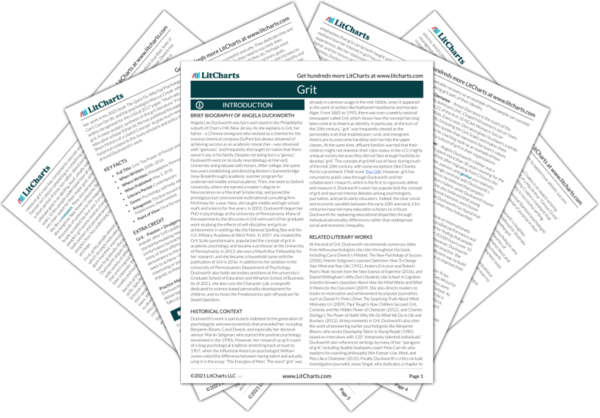Duckworth recognizes that it’s difficult for people to actively
enjoy deliberate practice, but she suggests that they can still make it
less painful by changing the way they think about it. In fact, her advice foreshadows her central argument in Chapter 9, which is about how to cultivate hope—or learn to maintain confidence and continue improving despite failure. After all, deliberate practice is really just a process of continual improvement through continual failure: people set stretch goals that they
know they won’t meet because
reaching for these goals allows them to gradually improve. Thus, gritty people must learn to befriend failure—or at least be comfortable with it.


